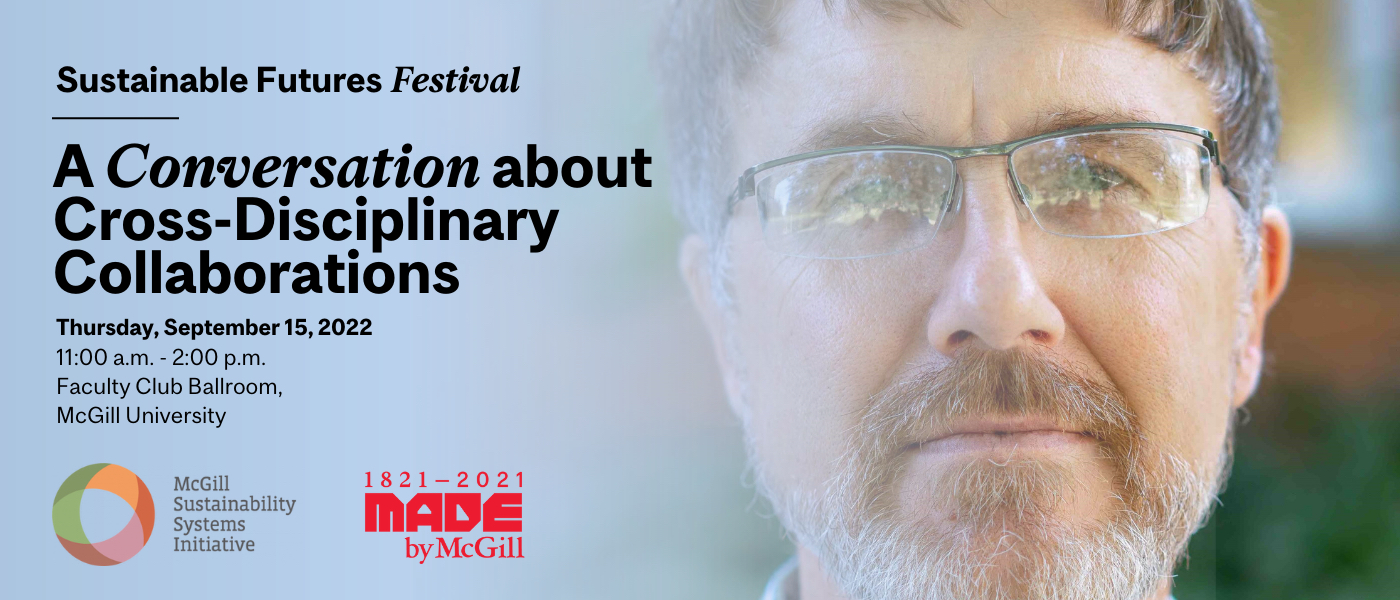
Addressing sustainability challenges requires cross-disciplinary collaborations – but what does it take to break down silos and forge fruitful relationships with other researchers?
Michael O’Rourke is a professor with the Department of Philosophy, the Faculty of Environmental Science & Policy, and the AgBioResearch initiative at Michigan State University. He is also the director of the Toolbox Dialogue Initiative, a research consortium sponsored by the National Science Foundation that investigates philosophical approaches to facilitating interdisciplinary research.
On September 15, as part of McGill’s Sustainable Futures Festival, Prof. O’Rourke will give a talk exploring how to enable environments that support cross-disciplinary collaborations. He will touch on both the theory and practice of these types of collaborations, drawing on his experience as a researcher and facilitator to highlight examples of success stories.
He took the time to answer a few questions ahead of the event.
How did you go from being a professor of philosophy to working as a facilitator?
During my graduate studies, I had the opportunity to interact with people from other disciplines – psychology, computer science, linguistics – as part of an interdisciplinary centre at Stanford. I became really curious about the different ways that people from other disciplines framed and investigated the problems I was studying.
Once I got tenure, the first big interdisciplinary research project I was part of involved designing a language that would allow autonomous underwater vehicles to communicate and coordinate collaborative behaviour. When I was later asked to provide a philosophical perspective on a project designed to give graduate students a chance to do meaningful interdisciplinary work, it was just supposed to be an overload course I taught in the spring of 2005. It has since become my research focus. It’s basically all I think about now.
What are some habits researchers might need to unlearn if they want to collaborate across disciplines?
One problem that can arise is academics are kind of disincentivized from talking about obvious things with their collaborators. You’re taught to be an expert, and no one wants to be known as Captain Obvious. But what’s going to seem obvious to you is a function of your training and your field of study. Your collaborators may have no idea what those things are. And similarly, you need to get comfortable asking stupid questions.
So one goal of my workshops is to create a safe space where people can talk about the obvious things and share core aspects of their academic worldview with one another. Which is something that might not happen organically because of the way the academy trains us to think and act.
What skills would you encourage academics to develop in order to strengthen their ability to work across disciplines?
First off, if you’re going to be a successful interdisciplinarian, you need to be a good listener.
At the Toolbox Dialogue Initiative, we also focus on developing what we call your inner disciplinary consciousness. This is the ability to reflect on your own positionality and perspective on a project. It can sometimes feel self-indulgent to pause and ponder the situation rather than pushing forward. But you can’t be a good interdisciplinarian, in my opinion, unless you’re thoughtful about where you’re coming from and what you’re adding to the mix.
What is the value of events, like the one you’ll be speaking at on September 15, that give researchers from varying disciplines a space to gather together and have informal discussions?
A foundational aspect of meaningful cross-disciplinary collaborative work – the kind that can put us in a position to address complex, existential challenges like climate change – is communication. But being able to communicate with one another is not just about information transfer. An important part of interpersonal communication is creating relationships with other people that are grounded in trust and respect. So events like this put you in a position to build some of those connections. To find people you like talking to, people you like listening to, people you might begin to imagine working with on a project. The next thing you know, you’re applying for a grant together.
A Conversation About Cross-Disciplinary Collaborations will take place on September 15, beginning at 11 a.m., during the Sustainable Futures Festival. Learn more and register here.
